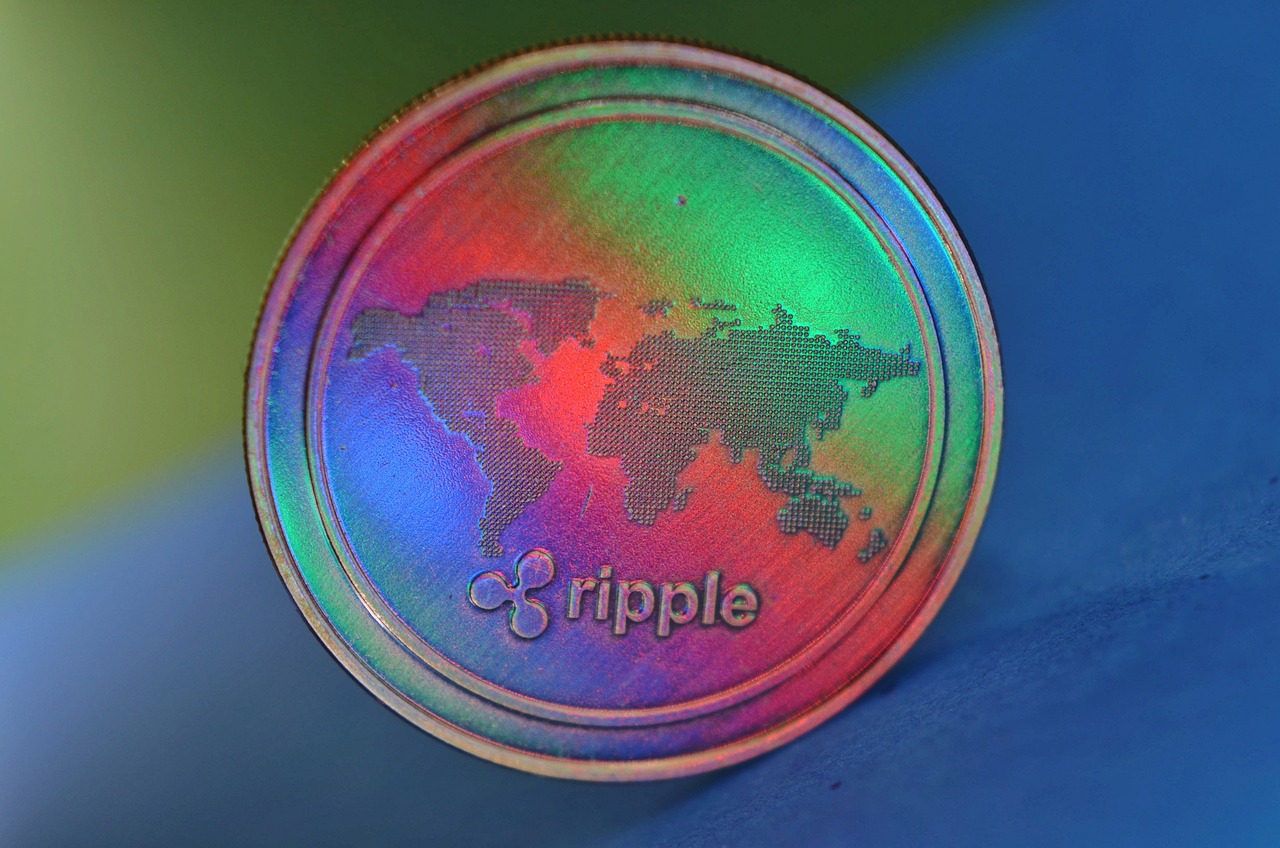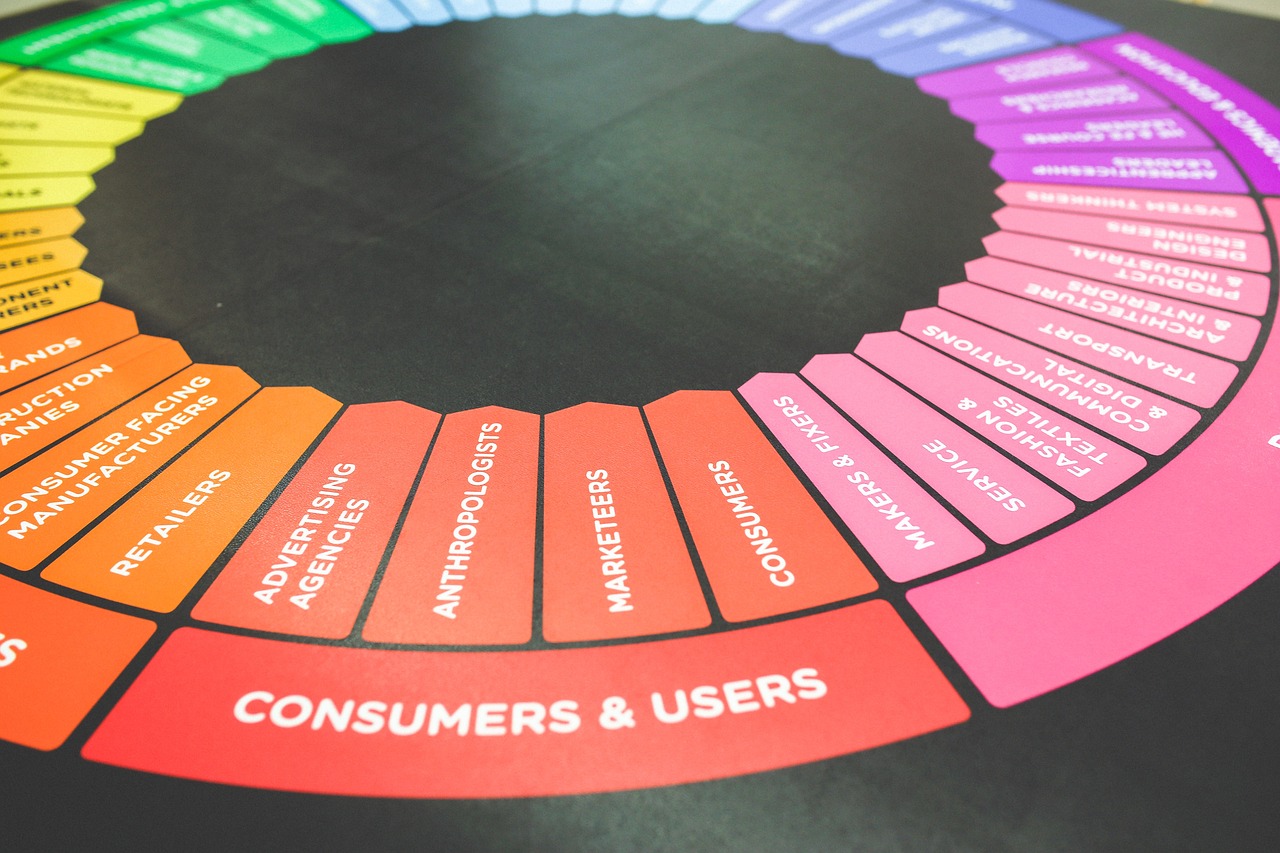How to Use Blockchain for Digital Marketing
In today's fast-paced digital landscape, marketers are always on the lookout for innovative ways to connect with their audiences. Enter blockchain technology, a game-changer that is set to revolutionize the digital marketing arena. But how exactly can blockchain be utilized to enhance marketing strategies? This article delves into the intersection of blockchain and digital marketing, exploring its potential benefits, applications, and the challenges that come along with this transformative technology.
Before diving into the ways blockchain can be harnessed in digital marketing, it's crucial to understand the foundational principles of this technology. At its core, blockchain is a decentralized ledger that records transactions across multiple computers in such a way that the registered transactions cannot be altered retroactively. This creates an environment of immutability and transparency, redefining how data is managed and shared. Imagine a world where every transaction is visible, verifiable, and tamper-proof; that’s the power of blockchain!
Blockchain is not just a buzzword; it offers a plethora of advantages that can significantly enhance digital marketing efforts. From enhanced security to improved data privacy, the benefits are manifold. Let's take a closer look at how blockchain can reshape marketing strategies:
In an era where data breaches are alarmingly common, blockchain's decentralized nature provides a robust solution for protecting sensitive customer information. By storing data across a network of computers, it becomes exceedingly difficult for hackers to compromise personal data. This not only safeguards consumer information but also fosters trust between brands and their customers. When consumers know their data is secure, they are more likely to engage with brands.
Advertising fraud is a persistent issue that drains marketing budgets. Blockchain technology can significantly mitigate this problem by offering transparent and verifiable data regarding ad placements and performance. This means marketers can ensure they are only paying for genuine traffic and engagement, leading to a more efficient allocation of resources. Just think about it: no more paying for fake clicks or impressions!
Transparency is the name of the game in today’s marketing world. By leveraging blockchain, brands can provide consumers with clear insights into how their data is used and how advertising practices operate. This kind of transparency helps in building lasting trust and loyalty between customers and businesses. When consumers feel informed and valued, they are more likely to remain loyal to a brand.
One of the most exciting aspects of blockchain is its potential to enhance targeting and personalization in marketing campaigns. With blockchain, marketers can collect and analyze consumer data more efficiently, allowing for highly tailored marketing strategies. Imagine receiving personalized offers that genuinely resonate with your interests and needs—this is the future that blockchain promises.
While the advantages of blockchain are enticing, it’s important to acknowledge the challenges that come with integrating this technology into digital marketing. Issues such as technological complexity, regulatory concerns, and the need for industry-wide collaboration can pose significant hurdles.
The complexity of blockchain technology can be daunting for many businesses. Understanding and implementing the necessary tools and infrastructure can feel like navigating a labyrinth without a map. Many marketers may find themselves overwhelmed, which can hinder the adoption of blockchain solutions. It’s essential for businesses to invest in education and training to overcome these barriers.
As with any emerging technology, regulatory frameworks play a crucial role in how blockchain can be utilized. Marketers must navigate various data privacy laws and advertising regulations, which can impact the deployment of blockchain solutions. Staying compliant while leveraging blockchain technology requires careful planning and foresight.
As blockchain technology continues to evolve, new trends are emerging that promise to reshape the digital marketing landscape. Some of these trends include:
- Decentralized advertising platforms that empower consumers
- Tokenization of customer loyalty programs, making rewards more accessible
- Enhanced consumer engagement strategies through smart contracts
These trends highlight the potential for a more interactive and rewarding marketing experience for both brands and consumers. The future is bright for those willing to embrace blockchain!
Q: What is blockchain technology?
A: Blockchain is a decentralized digital ledger that records transactions across multiple computers, ensuring that the data cannot be altered retroactively.
Q: How does blockchain enhance data security in marketing?
A: By decentralizing data storage, blockchain makes it difficult for hackers to access sensitive information, thus protecting customer data.
Q: What are the main challenges of implementing blockchain in digital marketing?
A: Key challenges include technological complexity, regulatory considerations, and the need for industry-wide collaboration.
Q: What future trends can we expect in blockchain marketing?
A: Expect to see decentralized advertising platforms, tokenized loyalty programs, and enhanced engagement strategies through smart contracts.

Understanding Blockchain Technology
To effectively integrate blockchain into digital marketing, it's essential to grasp its core principles. Imagine a world where every transaction is recorded in a secure, unchangeable ledger that anyone can access and verify. This is the essence of blockchain technology. It operates on three fundamental principles: decentralization, immutability, and transparency. These principles redefine how data is managed and shared, ultimately transforming the marketing landscape.
Decentralization means that no single entity controls the entire database. Instead, multiple participants maintain copies of the ledger, ensuring that data is not held hostage by one organization. This is akin to having a community library where everyone contributes books, and no single person can dictate which books stay or go. In marketing, this decentralization fosters a more democratic approach to data management, allowing brands and consumers to interact on a level playing field.
Next is immutability. Once data is entered into the blockchain, it cannot be altered or deleted. This feature is like writing in ink rather than pencil; once it's down, it's permanent. In the context of digital marketing, this means that all transactions, interactions, and engagements are recorded transparently, providing a reliable history that brands can reference to evaluate their strategies and consumer behavior.
Finally, we have transparency. This principle ensures that all participants in the blockchain network can view the same data, promoting trust and accountability. Imagine a glass house where everyone can see what's happening inside; this openness can help eliminate doubts and foster stronger relationships between brands and consumers. In a marketing context, transparency allows consumers to see how their data is used, which can significantly enhance their trust in a brand.
Understanding these principles is crucial for marketers looking to leverage blockchain technology. By embracing decentralization, immutability, and transparency, brands can create more secure, trustworthy, and effective marketing strategies. However, it's also important to recognize that while blockchain offers exciting possibilities, it comes with its own set of challenges and complexities that marketers must navigate.
As we delve deeper into the benefits and challenges of blockchain in digital marketing, it's vital to keep these core principles in mind. They serve as the foundation for a new era in marketing, where data integrity and consumer trust are paramount. Are you ready to explore how these principles can reshape your marketing strategies?

Benefits of Blockchain in Marketing
Blockchain technology is revolutionizing the world of digital marketing, and the benefits it offers are nothing short of transformative. Imagine a marketing landscape where data is secure, transparent, and trustworthy. This is the promise of blockchain, and it brings numerous advantages that can significantly enhance marketing strategies. One of the most compelling benefits is enhanced data security. In an age where data breaches are alarmingly common, blockchain's decentralized nature acts as a fortress, protecting sensitive customer information. By storing data across a network of computers rather than in a single location, marketers can safeguard personal information, instilling confidence in consumers that their data is in safe hands.
Moreover, the implications of blockchain extend to reducing fraudulent activities. Picture this: a marketer invests in a campaign, only to discover later that a significant portion of their ad spend went to bots instead of real users. With blockchain, this scenario can become a relic of the past. The technology allows for transparent and verifiable data on ad placements and performance. Marketers can track every click, impression, and interaction, ensuring that they only pay for genuine traffic. This not only saves money but also enhances the overall effectiveness of marketing efforts.
Another crucial benefit is building consumer trust. In a world where consumers are increasingly skeptical about how their data is used, blockchain can bridge the gap between brands and their audiences. By providing transparent insights into data usage and advertising practices, brands can foster a sense of trust and loyalty. For instance, if a consumer knows exactly how their data is being collected and utilized, they are more likely to engage with a brand. This transparency can lead to long-lasting relationships, as customers feel valued and respected.
Furthermore, blockchain technology enables marketers to improve targeting and personalization. With enhanced data collection and analysis capabilities, brands can create highly targeted campaigns that resonate with specific audience segments. Imagine a scenario where a consumer receives personalized offers based on their unique preferences and behaviors, all thanks to the insights derived from blockchain. This level of personalization not only boosts engagement but also drives conversions, making marketing efforts more efficient and effective.
In summary, the benefits of integrating blockchain into digital marketing are multifaceted. From enhanced data security and reduced fraud to increased consumer trust and improved targeting, blockchain is paving the way for a new era of marketing. As brands begin to embrace this technology, they will find themselves equipped with the tools needed to navigate the complexities of the digital landscape with confidence.
- What is blockchain technology? Blockchain is a decentralized digital ledger that records transactions across many computers, ensuring that the recorded data cannot be altered retroactively.
- How does blockchain enhance data security? By decentralizing data storage, blockchain reduces the risk of data breaches, making it harder for hackers to access sensitive information.
- Can blockchain help reduce advertising fraud? Yes, blockchain provides transparent and verifiable data on ad placements, ensuring marketers only pay for genuine traffic.
- How does blockchain build consumer trust? Blockchain offers transparency in data usage and advertising practices, allowing consumers to see how their information is being used.
- What are the implications of blockchain for targeting and personalization? Blockchain enables more efficient data collection and analysis, allowing for highly targeted marketing campaigns tailored to specific audience segments.

Enhanced Data Security
In today's digital landscape, where data breaches and cyber threats are rampant, stands out as one of the most compelling advantages of integrating blockchain technology into digital marketing. Imagine a world where your personal information is locked away in a vault, accessible only to those you trust. That's the promise blockchain holds for marketers and consumers alike. By leveraging the decentralized nature of blockchain, businesses can ensure that sensitive customer data is not stored in a single location, making it far less vulnerable to attacks.
With traditional databases, hackers often target centralized systems, which can lead to massive data breaches. In contrast, blockchain's distributed ledger technology means that data is spread across a network of computers, making it incredibly difficult for malicious actors to compromise the entire system. Each transaction is encrypted and linked to the previous one, creating a chain of data that is nearly impossible to alter without consensus from the network. This immutability fosters a sense of security for both brands and consumers, as it assures them that their data is safe and cannot be tampered with.
Moreover, the transparency that blockchain offers allows consumers to see how their data is being used, which can significantly enhance trust. When consumers know that their information is protected and that they have control over how it is shared, they are more likely to engage with brands. This transparency can lead to a more loyal customer base, as trust is a fundamental element in the relationship between consumers and businesses.
In addition to these benefits, blockchain can also help in the following ways:
- Data Encryption: All data on the blockchain is encrypted, providing an extra layer of security that is not typically available in traditional databases.
- Access Control: Brands can set permissions on who can access customer data, ensuring that only authorized personnel can view sensitive information.
- Audit Trails: Blockchain maintains a complete history of all transactions, allowing for easy tracking and auditing of data access and usage.
As marketers continue to prioritize data security, adopting blockchain technology can provide a robust solution to protect customer information and enhance brand integrity. In a world where consumers are increasingly aware of their digital footprints, being able to guarantee data security through blockchain can be a game-changer for businesses looking to build lasting relationships with their audience.
In conclusion, the enhanced data security offered by blockchain technology not only protects sensitive information but also fosters trust and engagement between brands and consumers. As the digital marketing landscape evolves, embracing these security measures will become essential for businesses aiming to thrive in an increasingly competitive environment.
- What is blockchain technology? Blockchain is a decentralized digital ledger that records transactions across many computers, ensuring that the data cannot be altered without consensus.
- How does blockchain enhance data security? By decentralizing data storage, encrypting transactions, and providing transparency, blockchain minimizes the risk of data breaches and builds consumer trust.
- Can blockchain prevent advertising fraud? Yes, blockchain provides verifiable data on ad placements and performance, ensuring that marketers only pay for genuine traffic and engagement.
- What challenges does blockchain face in digital marketing? Challenges include technological complexity, regulatory concerns, and the need for industry-wide collaboration.

Reducing Fraudulent Activities
In the ever-evolving world of digital marketing, one of the most pressing issues that brands face is advertising fraud. This nefarious practice not only drains marketing budgets but also erodes trust between consumers and brands. Fortunately, blockchain technology offers a robust solution to this challenge. By leveraging its inherent features of transparency and immutability, blockchain can significantly reduce fraudulent activities in the advertising ecosystem.
At its core, blockchain operates as a decentralized ledger that records transactions across multiple computers. This means that once a transaction is recorded, it becomes nearly impossible to alter or delete it without the consensus of the network. For digital marketers, this translates to verifiable data regarding ad placements and performance metrics. Imagine being able to track every click, impression, and conversion with absolute certainty. This level of transparency can deter fraudsters who thrive on manipulating data to their advantage.
Additionally, blockchain can help ensure that marketers only pay for genuine traffic and engagement. By using smart contracts—self-executing contracts with the terms of the agreement directly written into code—brands can automate payments based on verified performance metrics. This means that if an ad is not viewed or interacted with as promised, the funds will not be released. Such a system not only protects the financial interests of marketers but also promotes a healthier advertising ecosystem.
To illustrate the potential impact of blockchain on reducing fraudulent activities, consider the following table:
| Traditional Advertising | Blockchain-Enabled Advertising |
|---|---|
| High risk of ad fraud | Transparent and verifiable ad placements |
| Difficulty in tracking performance | Real-time tracking and reporting |
| Payment for non-genuine traffic | Payment based on verified outcomes |
| Limited consumer trust | Increased trust through transparency |
By adopting blockchain technology, brands can not only protect their investments but also foster a more trustworthy relationship with their audience. When consumers see that a brand is committed to transparency and accountability, their trust deepens. This trust is crucial in today’s digital landscape, where consumers are increasingly wary of how their data is used and how much they can rely on the brands they engage with.
In conclusion, the integration of blockchain into digital marketing strategies presents a formidable opportunity to combat fraudulent activities. As marketers become more aware of the benefits that blockchain offers, we can expect to see a shift towards more secure and efficient advertising practices that ultimately benefit both brands and consumers alike.
- What is advertising fraud? Advertising fraud refers to deceptive practices that mislead advertisers into paying for fake traffic or engagement.
- How does blockchain prevent advertising fraud? Blockchain provides a transparent and immutable record of all transactions, making it difficult for fraudsters to manipulate data.
- What are smart contracts? Smart contracts are self-executing contracts with the terms directly written into code, allowing for automated and secure transactions.
- Can blockchain improve consumer trust? Yes, by offering transparency in data usage and advertising practices, blockchain can significantly enhance consumer trust.

Building Consumer Trust
In today's digital landscape, trust is a precious commodity. With rampant data breaches and privacy concerns, consumers are increasingly skeptical about how their information is used. This is where blockchain technology steps in as a game changer. By leveraging its inherent features of transparency and security, brands can foster a deeper connection with their audience. Imagine walking into a store where every product's origin, ingredients, and ethical sourcing are clearly displayed. That’s the kind of transparency blockchain can bring to digital marketing.
By utilizing blockchain, brands can provide verifiable proof of their claims. For instance, if a company states that its products are organic or ethically sourced, blockchain can provide a digital trail that consumers can independently verify. This not only enhances credibility but also empowers consumers to make informed choices. The more transparent a brand is, the more likely consumers are to trust it. Trust is not just about honesty; it’s about being open and accountable.
Moreover, blockchain enables brands to give consumers control over their own data. Instead of companies hoarding personal information, blockchain allows users to share only what they want, when they want. This shift not only protects consumer privacy but also builds a relationship based on mutual respect. When consumers feel that they have a say in how their data is used, they are more likely to engage with brands positively.
To illustrate this point, let’s consider a few key aspects of how blockchain can enhance consumer trust:
- Transparency: Every transaction is recorded on a public ledger, making it easy for consumers to track how their data is used.
- Accountability: With immutable records, brands are held accountable for their actions, reducing the chances of misleading claims.
- Control: Consumers can manage their own data, choosing what to share and with whom, fostering a sense of security.
In conclusion, building consumer trust in the age of digital marketing is more critical than ever. By integrating blockchain technology, brands can not only protect consumer data but also enhance transparency and accountability. This leads to stronger relationships and ultimately, a loyal customer base. As we move forward, the brands that prioritize trust and transparency will undoubtedly stand out in a crowded marketplace.
- What is blockchain technology? Blockchain is a decentralized digital ledger that records transactions across many computers, ensuring that the recorded transactions cannot be altered retroactively.
- How does blockchain enhance consumer trust? By providing transparency and security, blockchain allows consumers to verify claims made by brands and gives them control over their personal data.
- Can blockchain reduce fraud in digital marketing? Yes, blockchain can significantly reduce fraud by offering transparent and verifiable data on ad placements and performance.
- What are the challenges of implementing blockchain in marketing? Some challenges include technological complexity, regulatory concerns, and the need for collaboration across the industry.

Improving Targeting and Personalization
In today's digital marketing landscape, one-size-fits-all strategies are becoming increasingly ineffective. Consumers are bombarded with generic advertisements that rarely resonate with their unique preferences and needs. This is where blockchain technology steps in to revolutionize the way marketers approach targeting and personalization. By leveraging blockchain, marketers can gather and analyze consumer data with unprecedented efficiency, leading to campaigns that are not only more relevant but also more engaging.
Imagine a world where your favorite brands know exactly what you want, even before you do. With blockchain, this is becoming a reality. The technology allows marketers to collect data directly from consumers in a secure and transparent manner. This means that instead of relying on third-party data providers, brands can build a direct relationship with their audience. The result? More accurate insights into consumer behavior, preferences, and trends.
One of the key features of blockchain is its ability to facilitate data ownership. Consumers can control their own data and choose what information they want to share with brands. This creates a more personalized experience, as brands can tailor their marketing messages based on the specific data provided by the consumer. For instance, if a customer opts to share their shopping habits, a retailer can send personalized offers that align with those habits, enhancing the likelihood of conversion.
Additionally, blockchain enables the creation of smart contracts, which can automate and optimize marketing campaigns. These contracts can trigger specific actions based on predefined conditions, such as sending targeted ads to users who have shown interest in similar products. This not only improves the efficiency of marketing efforts but also ensures that consumers receive messages that are relevant to them. The beauty of this approach lies in its ability to create a win-win situation: consumers receive personalized content, while brands benefit from higher engagement rates.
Moreover, the transparency offered by blockchain technology allows marketers to track the effectiveness of their campaigns in real-time. By analyzing data on consumer interactions with ads, brands can quickly adjust their strategies to better meet the needs of their audience. This agility in marketing is crucial in a fast-paced digital environment where consumer preferences can shift overnight.
To further illustrate the potential of blockchain in improving targeting and personalization, consider a hypothetical scenario:
| Scenario | Without Blockchain | With Blockchain |
|---|---|---|
| Data Collection | Third-party data providers | Direct consumer data |
| Consumer Control | Limited control over data | Full control over shared data |
| Ad Relevance | Generic ads | Personalized ads |
| Campaign Adjustment | Delayed response | Real-time adjustments |
As you can see, the differences are striking. With blockchain, the marketing landscape transforms from a reactive approach to a proactive one, where brands can anticipate consumer needs and tailor their strategies accordingly. This not only enhances the consumer experience but also drives better results for businesses.
In conclusion, the integration of blockchain technology into digital marketing is a game-changer. It empowers brands to improve targeting and personalization like never before, creating a more engaging and relevant experience for consumers. As we move forward, the potential for blockchain to reshape the marketing landscape will only continue to grow, making it an exciting area to watch.
- What is blockchain technology? Blockchain is a decentralized digital ledger that records transactions across multiple computers, ensuring that the data is secure, transparent, and immutable.
- How does blockchain enhance data privacy? Blockchain allows consumers to control their own data, deciding what information to share with brands, thereby enhancing privacy.
- Can blockchain reduce advertising fraud? Yes, blockchain provides verifiable data on ad placements and performance, ensuring marketers pay only for genuine traffic.
- What role do smart contracts play in marketing? Smart contracts automate marketing processes, allowing for real-time adjustments based on consumer interactions.

Challenges of Implementing Blockchain
Despite the promising potential of blockchain technology in digital marketing, there are several challenges that businesses must navigate to effectively implement it. One of the primary hurdles is the technological complexity associated with blockchain systems. Many marketers find themselves overwhelmed by the intricate nature of blockchain technology, which can deter them from exploring its capabilities. As businesses strive to adopt this innovative technology, they often encounter a steep learning curve that necessitates a solid understanding of both the underlying principles and the practical applications of blockchain.
Moreover, the lack of standardized protocols across different blockchain platforms can create further confusion. Each platform may have its unique features and functionalities, making it challenging for marketers to choose the right one for their needs. This fragmentation can result in wasted resources and time, as businesses may invest in the wrong technology or fail to leverage blockchain's full potential.
Another significant challenge lies in regulatory considerations. With data privacy laws like GDPR and various advertising regulations in place, marketers must tread carefully when integrating blockchain into their strategies. The decentralized nature of blockchain can conflict with traditional data management practices, raising questions about compliance and accountability. Marketers need to ensure that their blockchain solutions align with existing regulations, or they risk facing legal repercussions that could tarnish their brand's reputation.
Additionally, industry-wide collaboration is essential for the successful adoption of blockchain in digital marketing. The technology thrives on shared networks and collective participation, yet many businesses operate in silos. This lack of collaboration can lead to fragmented efforts, where individual brands may struggle to see the benefits of blockchain without a unified approach. To overcome this challenge, companies must be willing to engage with partners, stakeholders, and even competitors to create a more cohesive ecosystem that fosters innovation and adoption.
In summary, while blockchain holds transformative potential for digital marketing, its implementation is not without challenges. Businesses must address the technological complexities, navigate regulatory frameworks, and foster collaboration within the industry to fully harness the benefits of this groundbreaking technology.
- What is blockchain technology? Blockchain is a decentralized digital ledger that records transactions across many computers in a way that the registered transactions cannot be altered retroactively.
- How can blockchain improve digital marketing? Blockchain can enhance data security, reduce fraud, and improve targeting and personalization in marketing campaigns.
- What are the main challenges of implementing blockchain? The main challenges include technological complexity, regulatory concerns, and the need for industry-wide collaboration.
- Is blockchain technology secure? Yes, blockchain is designed to be secure due to its decentralized nature and cryptographic principles, making it difficult for unauthorized parties to alter data.

Technological Barriers
When it comes to integrating blockchain technology into digital marketing, the journey can feel a bit like climbing a mountain. The view from the top is breathtaking, but the path is often steep and fraught with challenges. One of the primary hurdles is the inherent complexity of blockchain technology. For many marketers, grappling with concepts like distributed ledgers, consensus mechanisms, and cryptographic security can be overwhelming. Imagine trying to navigate a maze without a map; that's how it feels for those unfamiliar with this cutting-edge technology.
Additionally, the implementation of blockchain requires a significant investment in both time and resources. Companies must not only invest in the technology itself but also in training their teams to understand and utilize it effectively. This leads to a crucial question: how can marketers justify these investments when the ROI is still largely unproven? The reality is that many businesses are hesitant to dive into blockchain due to these uncertainties.
Moreover, the integration of blockchain into existing marketing systems can be quite challenging. Companies often rely on legacy systems that are not designed to work with decentralized technologies. This can result in a disjointed marketing ecosystem where data flows are interrupted, leading to inefficiencies and potential data loss. To overcome this, organizations may need to undergo a complete overhaul of their systems, which can be both costly and time-consuming.
Another significant barrier is the lack of standardized protocols across the blockchain landscape. With numerous platforms and technologies available, marketers may find themselves in a situation where they have to choose between competing solutions. This fragmentation can lead to confusion and make it difficult to establish best practices. For instance, consider the following table that highlights some of the prominent blockchain platforms and their unique features:
| Blockchain Platform | Key Features |
|---|---|
| Ethereum | Smart contracts, decentralized applications (dApps) |
| Hyperledger | Permissioned networks, enterprise solutions |
| Ripple | Fast transactions, cross-border payments |
| EOS | Scalable dApps, user-friendly interfaces |
Lastly, the rapid pace of technological advancement in the blockchain space can leave marketers feeling like they are always playing catch-up. New updates, features, and potential security vulnerabilities emerge regularly, making it difficult to stay informed. It's akin to trying to hit a moving target—just when you think you've got it in your sights, it shifts again. To navigate this ever-evolving landscape, marketers must be proactive in their learning and adaptable in their strategies.
In summary, while the potential of blockchain in digital marketing is immense, the technological barriers present a significant challenge. By understanding these complexities and investing in the right resources, marketers can begin to unlock the benefits of this revolutionary technology.
- What is blockchain technology? Blockchain is a decentralized digital ledger that records transactions across multiple computers securely and transparently.
- How can blockchain improve digital marketing? Blockchain enhances data security, reduces fraud, and builds consumer trust, leading to more effective marketing strategies.
- What are the challenges of implementing blockchain? Key challenges include technological complexity, regulatory concerns, and the need for industry-wide collaboration.
- Is blockchain technology suitable for all businesses? While blockchain offers many benefits, its suitability depends on the specific needs and capabilities of the business.

Regulatory Considerations
As exciting as the intersection of blockchain technology and digital marketing may be, it comes with its fair share of challenges, particularly in the realm of . Navigating the complex web of laws and regulations can feel like trying to find your way through a maze. Each country has its own set of rules regarding data privacy, advertising practices, and consumer protection, making it crucial for marketers to stay informed and compliant.
One of the primary concerns is how data privacy laws impact the use of blockchain. For instance, regulations like the General Data Protection Regulation (GDPR) in Europe impose strict guidelines on how personal data can be collected, stored, and used. Marketers must ensure that their blockchain solutions comply with these laws, which often require explicit consent from consumers before their data can be utilized. This can be particularly challenging with blockchain’s inherent nature of immutability, where once data is recorded, it cannot be altered or deleted. How do you reconcile the need for data permanence with the right to be forgotten? This is a question that marketers must grapple with.
Moreover, advertising regulations can also complicate matters. In many jurisdictions, there are specific rules governing how advertisements must be disclosed, particularly in the context of influencer marketing and affiliate programs. Blockchain can provide transparency in ad placements, but if the data shared does not comply with local advertising laws, it can lead to legal repercussions. Marketers need to be diligent in understanding these regulations to avoid potential pitfalls.
Collaboration with legal experts and regulatory bodies is essential for businesses looking to integrate blockchain into their marketing strategies. This can help ensure that they are not only compliant but also able to leverage the full potential of blockchain technology in a way that is both ethical and effective. In this rapidly evolving landscape, staying ahead of regulatory changes is key.
In conclusion, while blockchain offers a plethora of opportunities for digital marketing, the regulatory landscape is complex and ever-changing. Marketers must be proactive in understanding these regulations to harness the benefits of blockchain without falling into legal traps. By doing so, they can pave the way for a more secure and transparent future in digital marketing.
- What is blockchain technology? Blockchain is a decentralized digital ledger that records transactions across many computers, ensuring that the recorded information cannot be altered retroactively.
- How does blockchain enhance data security in marketing? Its decentralized nature protects sensitive customer data from breaches, fostering consumer trust.
- What are the regulatory challenges of using blockchain in marketing? Marketers must navigate data privacy laws, advertising regulations, and ensure compliance with local laws.
- Can blockchain help reduce advertising fraud? Yes, it provides transparent and verifiable data on ad placements and performance, ensuring marketers pay only for genuine traffic.

Future Trends in Blockchain Marketing
As we look to the horizon of digital marketing, the integration of blockchain technology is set to redefine the landscape in ways we can only begin to imagine. One of the most exciting trends is the emergence of decentralized advertising platforms. These platforms are designed to cut out the middleman, allowing brands to connect directly with consumers. This not only reduces costs but also enhances the efficiency of ad spend, ensuring that every dollar goes further. Imagine a world where brands can reach their audience without the interference of traditional advertising networks—sounds revolutionary, right?
Another trend gaining traction is the tokenization of customer loyalty programs. By utilizing blockchain, brands can create unique tokens that customers earn through their purchases, which can be redeemed for rewards or discounts. This approach does not just incentivize purchases but also fosters a sense of community among customers. When consumers can trade these tokens or even use them across different brands, it creates a dynamic marketplace that benefits everyone involved. Think of it like a digital currency that rewards loyalty—how cool is that?
Furthermore, we can expect enhanced consumer engagement strategies through the use of smart contracts. These are self-executing contracts with the terms of the agreement directly written into code. For marketers, this means automating processes such as payment releases or reward distributions based on consumer actions. For instance, if a customer shares a brand's content on social media, a smart contract could automatically trigger a reward. This not only streamlines operations but also encourages consumer participation in a way that feels rewarding and engaging.
However, while these trends are exciting, they also come with their own set of challenges. The need for industry-wide collaboration is crucial. For blockchain marketing to truly flourish, brands, tech companies, and regulatory bodies must work together to create standards that ensure transparency and security. Without this collaborative spirit, the potential of blockchain in marketing could be stunted.
In summary, the future of blockchain in digital marketing is not just about technology; it's about creating a more transparent and efficient ecosystem that benefits everyone. As marketers, we have the opportunity to harness these innovations to build stronger relationships with consumers, streamline operations, and ultimately drive better results. Are you ready to embrace this exciting future?
- What is blockchain technology?
Blockchain is a decentralized digital ledger that records transactions across multiple computers securely and transparently. - How can blockchain improve digital marketing?
Blockchain enhances security, reduces fraud, and fosters consumer trust, making marketing strategies more effective. - What are smart contracts?
Smart contracts are self-executing contracts with the terms of the agreement directly written into code, automating processes in marketing. - What challenges does blockchain face in marketing?
Challenges include technological complexity, regulatory concerns, and the need for collaboration among industry players.
Frequently Asked Questions
- What is blockchain technology?
Blockchain technology is a decentralized digital ledger that records transactions across many computers. This means that the data is secure, transparent, and immutable, making it nearly impossible to alter or hack. Think of it as a digital notebook that everyone can see, but no one can erase or change without consensus.
- How can blockchain enhance digital marketing?
Blockchain can enhance digital marketing by improving data security, reducing fraud, and building consumer trust. With blockchain, marketers can ensure that customer data is protected, verify ad placements, and provide transparency about how consumer data is used. This leads to more efficient marketing strategies and stronger relationships with consumers.
- What are the main benefits of using blockchain in marketing?
The key benefits of using blockchain in marketing include enhanced data security, reduced fraudulent activities, and improved targeting and personalization. Marketers can protect sensitive customer information, ensure they are paying for genuine engagement, and create personalized campaigns based on verified consumer data.
- What challenges do marketers face when implementing blockchain?
Marketers face several challenges when implementing blockchain, including technological complexity, regulatory concerns, and the need for collaboration within the industry. Understanding how to effectively use blockchain technology can be daunting, and navigating the various data privacy laws can complicate the integration process.
- What future trends can we expect in blockchain marketing?
Future trends in blockchain marketing include the rise of decentralized advertising platforms, the tokenization of customer loyalty programs, and enhanced consumer engagement through smart contracts. These trends promise to create a more interactive and rewarding experience for consumers while providing marketers with valuable insights.



















